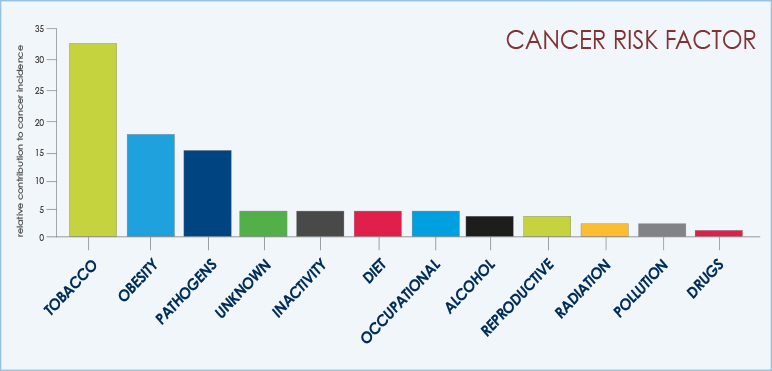Follow Bioscience Institute
Solid cancer
Cancer is a genetic disease. The accumulation of somatic mutations in the DNA of a cell leads to deregulation of its physiological functions resulting in uncontrolled growth eventually leading to cancer development. Once established, tumors shed DNA that can reach the circulatory system (circulating-free DNA or cfDNA).
Thus, monitoring the emergence of somatic mutations present in cfDNA may allow the detection of cancer at very early stages.
Early stage tumors with no metastatic spread have a significant better chance to be successfully treated. Based on the analysis of cfDNA using Next Generation Sequencing technology (NGS), HELIXAFE, performed on a regular base, provides a mutation frequency monitoring system and a risk assessment for tumor incidence. In the last decade, the NGS technology has revolutionized medical genetics and pathology allowing to inexpensively sequence the human genome at high speed and accuracy.
Using a proprietary algorithm developed at the Bioscience Genomics, HELIXAFE annual prevention program allows the monitoring of mutations frequency via the interrogation of 2800 hotspots of mutations over 50 solid tumors-associated genes.
OBJECTIVE ASSESSMENT RISK
Currently the risk assessment of solid cancers is based on the evaluation of the clinical medical history and familiarity of a patient, along with the analysis of certain biomarkers (e.g. PSA for prostate tumor) at a specific time point. In many cases however, this approach fails to detect cancer at its early onset.
Using a monitoring approach, HELIXAFE analyzes in real-time the emergence of cancer-associated mutations through NGS technology generating a risk score via customized proprietary software.
NON-INVASIVE
cfDNA can be easily obtained from just a 10 ml sample of full blood. HELIXAFE annual prevention program enables the detection of mutations associated with cancer risk development in real-time, or to follow-up mutations already detected in previous analyses, thus informing on the evolution of genetic aberrations. For patients at high-risk as defined using HELIXAFE, cancer-associated genetic alterations will be measured using SCED (Solid Cancer Early Detection). SCED ensures an accurate mutational analysis of cfDNA (at allelic frequency as low as 0.05%) with the aim of early cancer onset detection at stage were chances to be cured are high.



